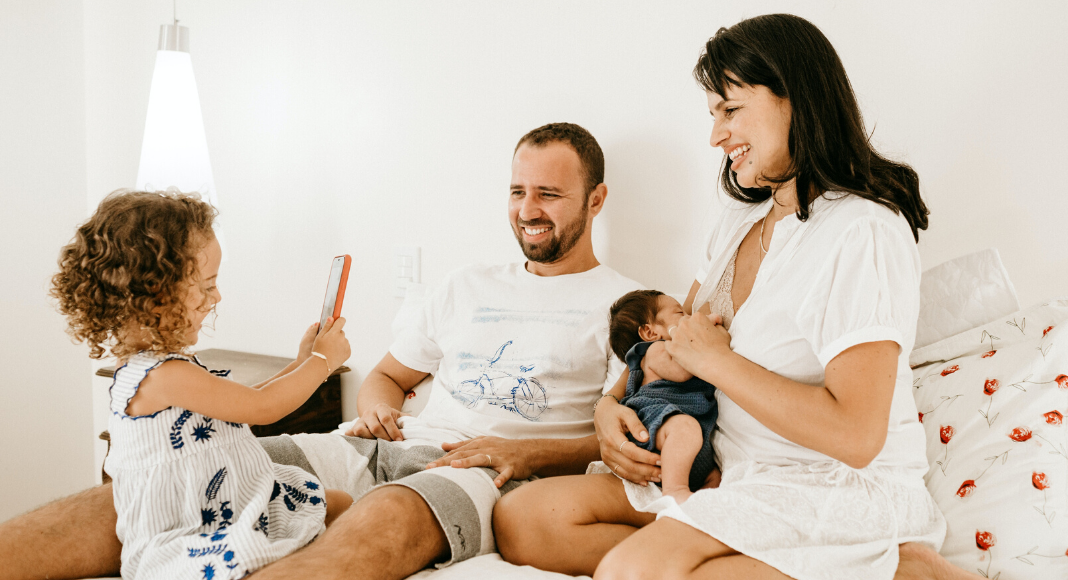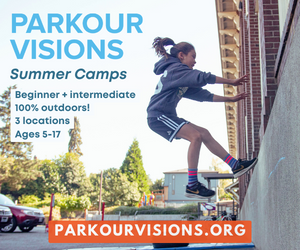Now that governors across the US have issued shelter-in-place orders, everyone is spending A LOT more time at home. This translates to no escaping copious amounts of time around your immediate family. And tensions are HIGH!
It’s no surprise that a lot of us are having a difficult time adjusting to this new normal and trying to work with our partners to parent the best we can. That’s why I decided it was time to consult a professional.
 Below are some of the helpful insights I gleaned from my conversation with Jacqueline Holden, MA, NCC, PMH-C of Holden Counseling and Education, LLC. Jacqueline is a local therapist and relationship educator working in SW Portland.
Below are some of the helpful insights I gleaned from my conversation with Jacqueline Holden, MA, NCC, PMH-C of Holden Counseling and Education, LLC. Jacqueline is a local therapist and relationship educator working in SW Portland.
You can watch the entire interview with Jacqueline Holden on our Facebook page or listen to the podcast episode at Raising Cascadia.
Why does it feel so much harder to parent with our partners right now?
THIS ISN’T NORMAL!
We aren’t on vacation or taking time off. This is hard and different and a massive adjustment for the entire family. While we’re trying to get everyone settled for a new, unexpected set-up, we also have to deal with the fact that we have less personal time and space to decompress.
It’s also harder to access the typical ways some of you might practice self-care. Finding alone time can be next to impossible. If leaving the house was a way that you recharged, that option is likely off the table for the foreseeable future.
All of this together makes for a more stressful situation, and more conflict can certainly be a consequence of that.
How do we deal with this increased conflict with our parenting partners while we shelter in place?
Again, this is not normal. No one was preparing for the conditions that we are in now. The first step is to acknowledge, both for yourself and your parenting partner, that things will not be perfect, and there’s a definite learning curve along the way.
Even now, several weeks in, it’s totally acceptable to still be in an adjustment period. Try to give yourself some grace and realize, even if you somehow put together a seemingly perfect plan for all the things, there will be bumps in the road.
The key here is to try to remain flexible. What works one day may need some tweaking (or perhaps something entirely different) the next.
What should we do when we don’t agree with our partner on an issue related to parenting?
Parenting styles always mesh well when there isn’t a global pandemic, right? Well, no. The same holds true during times when we’re in constant contact; it’s just a bit intensified.
Under normal circumstances, we usually have a little more space and time to work through differences with our partners. Now, a lot of parents feel pressured to figure out everything right now! (This is probably because you have an ever-growing list of issues to tackle: education, work, food, cleaning, the list goes on and on.)
The fix? Flexibility! Whatever decision you and your partner make, it doesn’t mean it’s forever. Many of us are operating on a day-by-day approach, so your parenting decisions can act in the same way. Maybe you try one approach today, for example, with screentime. If it fails miserably, try something different the next day. Nothing is set in stone.
When communicating with your parenting partner, it’s vital to “Listen to Understand.” This means trying to understand the core of your partner’s perspective. You want to really understand where they are coming from (and not solely try to convince them that you are the one in the right).
What’s the best way to approach these conversations with our parenting partners during quarantine?
Read the room. Did your partner just get off a rather intense conference call or just broke up the hundredth fight of the day between the kids? It may not be the best time to tell them they’re doing it wrong discuss the approach going forward.
It’s perfectly acceptable to schedule a time later in the day to have a healthy, level-headed, adult conversation about the issue at hand. If you try to broach a somewhat contentious topic when emotions are already running high, you’ll likely end up in an argument, usually about an entirely different issue.
What if my partner and I have clashing opinions about quarantine?
First off, it’s important to note that this situation can trigger a number of underlying anxieties. Some people feel like they’re on high alert continuously as things unfold, with their fight-flight-or-freeze response feeling like it’s on far too often. This can lead to a bit of hypervigilance. And while it’s essential to take the advice on sheltering-in-place and sanitization seriously, if you take it TOO far, it can start to affect the rest of your family negatively.
On the other end of the spectrum, someone that’s less concerned may feel frustrated at the increasing number of things that they can’t do. Both of these feelings are valid.
The way to reconcile these differences is to go back to “Listening for Understanding.” Be upfront with your partner, not only about the what but more importantly the why. Coming to the conversation with an open mind and genuinely listening to your partner’s why is way more likely to lead to a healthy resolution.
Is there a way I can help my partner feel less anxious in quarantine?
Maybe.
Keep the lines of communication open and ask your partner how they are feeling and if there is a way you can help. Sometimes your partner might not even be looking for you to “fix” anything and just need you to listen. It’s okay to ask if they want advice or are mainly wanting to vent. (Venting can be healthy, you know.)
If your partner has dealt with anxiety in the past, and you’re aware of some of their preferred coping mechanisms, try to help them facilitate those things. You may have to get creative, but it’s often the thought that counts.
In the end, we’re all doing our best to get through this.
It’s probably no surprise to you, but this is going to be hard. Some days are going to be harder than others. All we can do is try our best and get as creative as possible to tackle the issues as they come our way.
Adjusting to this new (temporary) normal is going to take some time for everyone in the family. The best thing we can do for our relationship with our parenting partners is to keep an open line of communication and try to approach topics with empathy.
One way or another, we’ll get through this together.
Check out the full interview for more questions (and answers) about how to navigate parenting with your partner during quarantine.

















